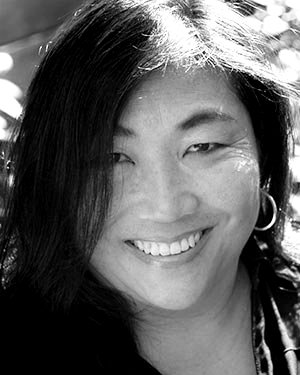Michelle Nakaishi, MS ’06 : Breaking down silos between mental and physical health
Michelle Nakaishi discovered psychiatric care during a nursing school clinical rotation treating pediatric obesity patients at Zuckerberg San Francisco General Hospital.
 She liked working with underserved populations and building long-term relationships to help families make changes. She enjoyed the depth of hour-long sessions instead of 15-minute interviews. And she loved the complexity.
She liked working with underserved populations and building long-term relationships to help families make changes. She enjoyed the depth of hour-long sessions instead of 15-minute interviews. And she loved the complexity.
“You're kind of like an orchestra conductor because there are so many things to figure out about what's going on in this person's life,” Nakaishi says. She’d probe a patient’s economic circumstances, food access, school environment, and how the parents talk about food and eating behaviors. Then she’d work to get everyone – the school, the parents, the therapists – on the same page. “It’s a combination of medical science and social science,” she observes. “It's like people science – how do you motivate people to change?”
Nakaishi has spent the last 14 years as a pediatric nurse practitioner at UCSF Benioff Children’s Hospital Oakland, Department of Psychiatry, and now trains others on a holistic, team approach to mental health. One recent project provided trauma-informed care training to seven Bay Area counties, teaching workers – “from janitors to judges” – to ask “What’s happened to you?” instead of “What’s wrong with you?” That means, for example, considering that a person who’s becoming upset in a waiting room may have just lost their housing. “It gives you a deeper understanding of why people might be acting in a certain way and teaches you to not personalize it, even when they’re angry,” she explains.
Nakaishi is especially proud of her work integrating behavioral health into primary care. She was part of a treatment team that included primary care providers, therapists, the young patient, and the patient’s family. This holistic approach breaks down unnecessary barriers that separate physical and mental health care, she says, educating families on dealing with issues like anxiety. The result is easier and faster access to care for the families and reduced stigma around psychiatric care.
And, Nakaishi adds, when the primary care team can treat milder mental health issues, that frees up psychiatric professionals to treat the most severe patients. She and her longtime mentor, Naomi Schapiro, RN, PhD, PNP, professor in the UCSF Department of Family Health Care Nursing, designed a collaborative-care course for UCSF’s pediatric nursing program so effective teamwork between nurse practitioners informs the toughest challenges.
In this line of work, compassion is a must. “You have to have compassion because you are working with these young people and their families in a highly challenging time of their lives,” she says. “You're giving them concrete steps to take. You’re helping them recover and heal.” And when those steps pay off, and their condition improves, "Wow,” Nakaishi says. “That feels pretty darn good.”
Michelle Nakaishi won a 2020 UCSF Campaign Alumni Award in “The Compassionate” category. The award honors individuals whose work is marked by boundless empathy, understanding, and caring within health care or science.